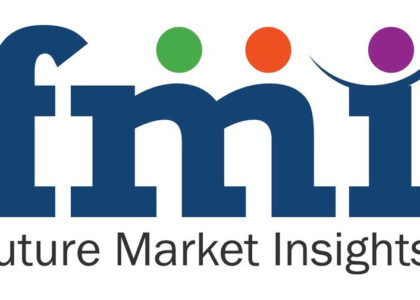PV module encapsulant film, a crucial component in solar panels, ensures protection and longevity. This transparent, weather-resistant layer shields photovoltaic cells from moisture, UV rays, and mechanical stress, enhancing energy efficiency and durability. Its role in maintaining optimal performance underscores its significance in sustainable energy production.
The benefits of solar photovoltaic (PV) modules, including their high dependability, lack of fuel use, low maintenance requirements, and reduced noise pollution, have drawn significant attention.
Thanks to its wider availability, solar photovoltaic technology is currently the most economical method of producing power. To achieve global energy and environmental goals, the use of solar photovoltaic modules is drastically increasing.
Get an overview of market drivers and challenges affecting this industry: https://www.futuremarketinsights.com/reports/sample/rep-gb-17081
The generation of clean, sustainable, and renewable energy from sunlight is mostly dependent on PV modules. As the demand for PV modules is increasing, so will the demand for PV module encapsulant films. This will expand the global PV module encapsulant film industry.
Key Takeaways from the PV Module Encapsulant Film Market Study:
- The global market for PV module encapsulant films is forecast to reach a valuation of 4.2 Billion by 2033.
- Global sales of PV module encapsulant films are likely to surge at 4.7% CAGR through 2033.
- Based on material, ethyl vinyl acetate segment is set to exhibit a CAGR of around 5.1% through 2033.
- China’s PV module encapsulated film market is expected to exceed a valuation of US$ 674 million by 2033.
- PV module encapsulant film demand in Italy is likely to increase at 5.6% CAGR through 2033.
- The United States PV module encapsulant films market value is forecast to reach around US$ 609 million by 2033.
“Rapid shift towards renewable energy sources such as solar power will generate high demand for PV module encapsulant films during the next ten years. Favorable government and regulatory environment are expected to provide massive growth opportunities to manufacturers that can innovate to meet the demands of sustainability from various consumer sectors.” says an analyst from Future Market Insights (FMI).
Competitive Landscape
Leading PV module encapsulant film manufacturers profile in the reports include 3M, Borealis, Changzhou Betterial Film Technologies Co., Ltd., Jiangsu Sveck Photovoltaic New Material, Hangzhou First Applied Material, Shanghai HIUV New Materials Co, Mitsui Chemicals Company, Arkema, Cybrid Technology, Topray Solar, Coveme, RenewSys, H.B. Fuller, TPI Polene, and Guangzhou Lushan New Materials Co., Ltd.
New product development, investments in research & development, partnerships, agreements, and collaborations are few of the key strategies employed by leading companies.
Discover the Engine Behind Insights: Delve into Our Report Methodology! https://www.futuremarketinsights.com/request-report-methodology/rep-gb-17081
Recent developments:
- In November 2022, a joint innovation signing ceremony was held by Jiangsu Sveck New Materials Co., Ltd., Changzhou EGING PV Technology Co., LTD., and China Quality Certification Center.
The aim was to promote the integrated development of the photovoltaic industry and innovative chain, with a focus on the new corrosion-resistant encapsulant film of the Sveck ‘TS’ series and the photovoltaic module of the ‘Star Pro’ series.
- In May 2022, Sveck New Materials Co., Ltd. started promoting the use of POE-based encapsulate solutions for bifacial applications. The company has developed a multilayer EVA-POE-EVA co-extruded film structure for bifacial modules as a supplier of EVA and POE encapsulation materials.
Segmentation of the Global PV Module Encapsulant Film Market
By Weight:
- Below 400 g/m2
- 400-475 g/m2
- Above 475 g/m2
By Material Type:
- Ethyl Vinyl Acetate (EVA)
- Transparent EVA
- White EVA
- Anti-PID EVA
- Polyolefin Elastomer (POE)
- Thermoplastic Polyolefin (TPO)
- Polyvinyl Butyral (PVB)
By Application:
- Monofacial PV Module
- Bifacial PV Module
By Thickness:
- 0.20-0.40 mm
- 0.40-0.60 mm
- 0.60-0.80 mm
By End-Use:
- Commercial
- Industrial
- Residential
By Region:
- North America
- Latin America
- Europe
- East Asia
- South Asia & Oceania
- Middle East & Africa
More Insights Available:
Future Market Insights (FMI), in its new offering, presents an unbiased analysis of the PV module encapsulant film market, presenting historical market data (2018 to 2022) and forecast statistics for the period from 2023 to 2033.
The study reveals extensive growth in PV module encapsulant film in terms of weight (below 400 g/m2, 400 to 475 g/m2, above 475 g/m2), material type (ethyl vinyl acetate, polyolefin elastomer, polyvinyl butyral), application (mono facial PV module, bifacial PV module), thickness (0.2 to 0.4mm, 0.4 to 0.6mm, 0.6 to 0.8mm), and end use (commercial, industrial, residential) across various regions.
About Future Market Insights, Inc. (FMI)
Future Market Insights, Inc. (ESOMAR-certified market research organization and a member of Greater New York Chamber of Commerce) provides in-depth insights into governing factors elevating the demand in the market. It discloses opportunities that will favor the market growth in various segments on the basis of Source, Application, Sales Channel and End Use over the next 10 years.
Contact Us:
Future Market Insights Inc.
Christiana Corporate, 200 Continental Drive,
Suite 401, Newark, Delaware – 19713, USA
T: +1-845-579-5705
For Sales Enquiries: sales@futuremarketinsights.com
LinkedIn| Twitter| Blogs | YouTube


